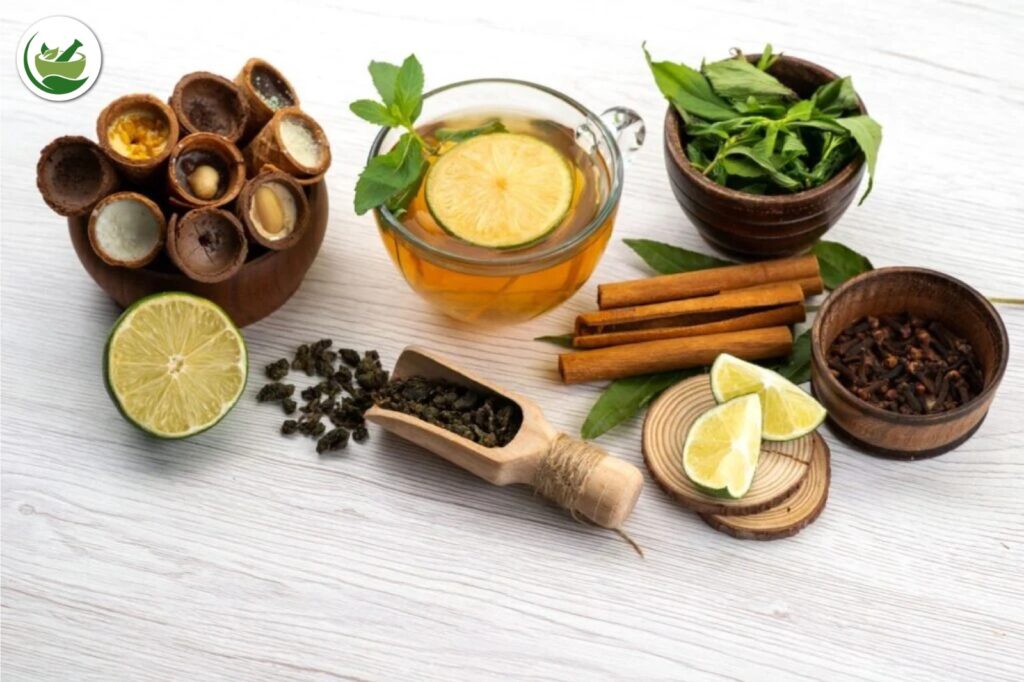
Ah, the unmistakable sound of a persistent cough—a symphony of discomfort that echoes through homes during the cold and flu season. While over-the-counter medications can provide relief, many people turn to homemade remedies for a more natural approach to managing coughs. In this blog, we’ll explore a range of effective and time-tested home remedies to help you find comfort during those cough-filled days.
Read more blogs about Homemade Remedies
Homemade Remedies for a cough
Honey and Lemon Tea
Ingredients: hot water, honey, and lemon juice.
How to: Mix a tablespoon of honey and a squeeze of fresh lemon juice into a cup of hot water. Sip slowly for soothing relief.
Ginger Infusion
Studies indicate that specific purified compounds found in ginger root possess the ability to relax muscles that constrict the airways. Ginger can be consumed in its raw form, or you can blend ground ginger root with honey and add it to hot tea for potential benefits.
Ingredients: fresh ginger, hot water, and honey (optional).
How to: Boil ginger slices in water, strain, and add honey if desired. Ginger’s anti-inflammatory properties can ease throat irritation.
Steam Inhalation
A moist cough, characterized by the production of mucus or phlegm, may benefit from steam therapy.
To employ this technique, individuals can take a hot shower or bath, allowing the bathroom to fill with steam. Remaining in the steam for a few minutes until symptoms are alleviated is advisable. Afterward, drinking a glass of water can help cool down and prevent dehydration.
Ingredients: hot water, a bowl, and a towel.
How to: Inhale steam by placing your head over a bowl of hot water and covering yourself and the bowl with a towel. This helps relieve nasal congestion and soothes the throat.
Turmeric Milk
Turmeric has long been used to treat a variety of diseases, including coughing. Curcumin, its main component, has significant anti-inflammatory actions.
Turmeric can be more effective when combined with black pepper. Reliable Source. This is because piperine, the main ingredient in black pepper, improves turmeric bioavailability. This aids in the absorption of turmeric by your body.
Consider drinking warm tea made with turmeric or yellow milk. Sweeten with a touch of black pepper and honey.
Ingredients: milk, turmeric, and honey.
How to: Warm milk, add a pinch of turmeric, and sweeten with honey. Turmeric’s antimicrobial properties can provide relief.
Saltwater Gargle
Can a saltwater gargle help with coughing? Saltwater does influence the mucous lining of the throat. This lining is home to irritants, allergies, bacteria, and viruses, all of which lead to illness. Salt efficiently removes infection-causing chemicals and assists in relaxing the thick mucus lining, providing relief.
Ingredients: warm water, salt.
How to: Dissolve a teaspoon of salt in warm water and gargle. This helps reduce throat inflammation and flushes out irritants.
Thyme Tea
Thyme tea, a boosting herbal drink made by steeping fresh thyme in boiling water, is a therapeutic beverage. Do you want to know how often you should drink thyme tea to get rid of a cough? It is suggested that you consume it 2-3 times a day. Combine 1 teaspoon dried thyme with 6 ounces boiling water; then sweeten with 1 teaspoon honey and a sprinkle of cinnamon. Incorporate this technique into your daily routine to get rid of colds and coughing.
Ingredients: dried thyme, hot water, honey.
How to: Steep dried thyme in hot water, strain, and add honey. Thyme has antibacterial properties that can help alleviate cough symptoms.
Frequently Asked Questions (FAQs)

Q1: How often should I use these remedies?
The frequency depends on the severity of your cough. You can generally use these remedies 2-3 times a day or as needed for relief.
Q2: Can these remedies be used for children?
While most remedies are safe for children, it’s essential to consult with a healthcare professional, especially for children under one year old.
Q3: Do these home cures have any harmful effects?
Although side effects are rare, it is critical to be aware of any sensitivities to the components. If you suffer any negative side effects, stop using the medication and see a doctor.
Q4: Can I combine multiple remedies?
Yes, you can combine remedies, but be cautious not to overdo it. Moderation is key, and it’s advisable to consult a healthcare professional if you have any concerns.
Read more about the treatment of cough in children
Conclusion
The beauty of homemade remedies for a cough lies in their simplicity and accessibility. However, it’s essential to remember that these suggestions are not a substitute for professional medical advice. If your cough persists or worsens, consult a healthcare provider for a proper diagnosis and treatment. In the meantime, these home remedies can offer a soothing balm for your irritated throat, helping you on your journey to recovery. Stay well!






